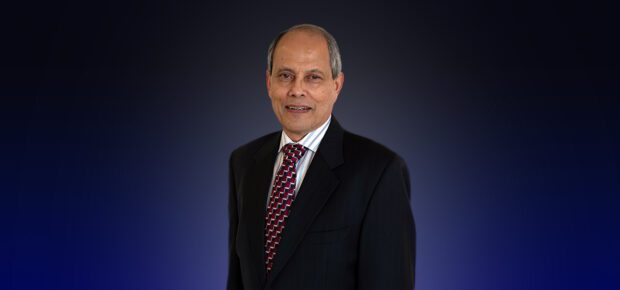April 25, 2023
When I speak with young and early career professionals, I am always gratified to discover just how excited they are to work on climate change and sustainability issues.
Young people are engaged. They are paying attention. And they are uniquely positioned to address a challenge that is greater than anything humanity has ever faced.
Solving the challenge of climate change has the potential to transform nearly every industry on the planet, from transportation to information processing and everything in between. As such, there is a growing demand for those with a wide range of skills and research interests.
IEEE is uniquely positioned to assist.
As the world’s largest organization of technical professionals, we help our members make vital connections, sharing knowledge across borders and oceans. In fact, over the past two years, we have sent delegations to UN meetings on climate change to help provide the engineering perspective for global change and have plans to participate again in 2023 and beyond.
IEEE equips our members with the ability to speak to both technologists and a general audience on these issues. Recently, we launched a new website, climate-change.ieee.org, to highlight technology news and resources focused on climate change. And through the IEEE Xplore® Digital Library, we’ve also launched the IEEE Climate Change Collection, a repository of highly cited scholarly publications, conference proceedings, and other materials to help foster the exchange of technical knowledge.
To a young professional I would suggest continually evolving and learning the new impacts that your area of discipline has on the world. My own career might serve as an example of the sweeping changes the technology community may experience.
I completed my PhD work on the optimum refueling of atomic reactors for electricity generation during the late 1970s, when nuclear power generation was growing in many countries. The growth of nuclear power in the US stalled in the 1980s, just as commercial interest began to grow around renewable energy. I started work on solar and wind energy along with other low-carbon electricity generation methods, such as fuel cells. Later, I began research into smart grid and the future of smart cities.
The evolution of my career has also helped me understand the impact that the growth of decarbonization technologies will have around the world, and taught me that there are so many ways that young professionals can contribute to making the world a better place. We need young professionals to understand the nature of the challenge of climate change so they can serve as leaders in their own communities.
I hope IEEE and its climate initiatives can do that for you.
ABOUT OUR AUTHOR
Saifur Rahman is the 2023 IEEE President and CEO, an IEEE Life Fellow, and the founding director of the Advanced Research Institute at Virginia Tech, where he is a professor of electrical engineering. Over the years, he has served IEEE in a number of capacities, including as president of the IEEE Power and Energy Society, and as the founding editor of IEEE Electrification Magazine and IEEE Transactions on Sustainable Energy.





 Liquid Infrastructure: Our Planet's Most Precious Resource
Liquid Infrastructure: Our Planet's Most Precious Resource The Impact of Technology in 2025
The Impact of Technology in 2025 Quantum and AI: Safeguards or Threats to Cybersecurity?
Quantum and AI: Safeguards or Threats to Cybersecurity? Why AI Can't Live Without Us
Why AI Can't Live Without Us Bits, Bytes, Buildings and Bridges: Digital-Driven Infrastructure
Bits, Bytes, Buildings and Bridges: Digital-Driven Infrastructure Impact of Technology in 2024
Impact of Technology in 2024 Emerging AI Cybersecurity Challenges and Solutions
Emerging AI Cybersecurity Challenges and Solutions The Skies are Unlimited
The Skies are Unlimited Smart Cities 2030: How Tech is Reshaping Urbanscapes
Smart Cities 2030: How Tech is Reshaping Urbanscapes Impact of Technology 2023
Impact of Technology 2023 Cybersecurity for Life-Changing Innovations
Cybersecurity for Life-Changing Innovations Smarter Wearables Healthier Life
Smarter Wearables Healthier Life Infrastructure In Motion
Infrastructure In Motion The Impact of Tech in 2022 and Beyond
The Impact of Tech in 2022 and Beyond Cybersecurity, Technology and Protecting Our World
Cybersecurity, Technology and Protecting Our World How Technology Helps us Understand Our Health and Wellness
How Technology Helps us Understand Our Health and Wellness The Resilience of Humanity
The Resilience of Humanity Harnessing and Sustaining our Natural Resources
Harnessing and Sustaining our Natural Resources Creating Healthy Spaces Through Technology
Creating Healthy Spaces Through Technology Exceptional Infrastructure Challenges, Technology and Humanity
Exceptional Infrastructure Challenges, Technology and Humanity The Global Impact of IEEE's 802 Standards
The Global Impact of IEEE's 802 Standards Scenes of our Cyber Lives: The Security Threats and Technology Solutions Protecting Us
Scenes of our Cyber Lives: The Security Threats and Technology Solutions Protecting Us How Millennial Parents are Embracing Health and Wellness Technologies for Their Generation Alpha Kids
How Millennial Parents are Embracing Health and Wellness Technologies for Their Generation Alpha Kids Space Exploration, Technology and Our Lives
Space Exploration, Technology and Our Lives Global Innovation and the Environment
Global Innovation and the Environment How Technology, Privacy and Security are Changing Each Other (And Us)
How Technology, Privacy and Security are Changing Each Other (And Us) Find us in booth 31506, LVCC South Hall 3 and experience the Technology Moon Walk
Find us in booth 31506, LVCC South Hall 3 and experience the Technology Moon Walk Virtual and Mixed Reality
Virtual and Mixed Reality How Robots are Improving our Health
How Robots are Improving our Health IEEE Experts and the Robots They are Teaching
IEEE Experts and the Robots They are Teaching See how millennial parents around the world see AI impacting the lives of their tech-infused offspring
See how millennial parents around the world see AI impacting the lives of their tech-infused offspring Take the journey from farm to table and learn how IoT will help us reach the rising demand for food production
Take the journey from farm to table and learn how IoT will help us reach the rising demand for food production Watch technical experts discuss the latest cyber threats
Watch technical experts discuss the latest cyber threats Explore how researchers, teachers, explorers, healthcare and medical professionals use immersive technologies
Explore how researchers, teachers, explorers, healthcare and medical professionals use immersive technologies Follow the timeline to see how Generation AI will be impacted by technology
Follow the timeline to see how Generation AI will be impacted by technology Learn how your IoT data can be used by experiencing a day in a connected life
Learn how your IoT data can be used by experiencing a day in a connected life Listen to technical experts discuss the biggest security threats today
Listen to technical experts discuss the biggest security threats today See how tech has influenced and evolved with the Games
See how tech has influenced and evolved with the Games Enter our virtual home to explore the IoT (Internet of Things) technologies
Enter our virtual home to explore the IoT (Internet of Things) technologies Explore an interactive map showcasing exciting innovations in robotics
Explore an interactive map showcasing exciting innovations in robotics Interactively explore A.I. in recent Hollywood movies
Interactively explore A.I. in recent Hollywood movies Get immersed in technologies that will improve patients' lives
Get immersed in technologies that will improve patients' lives